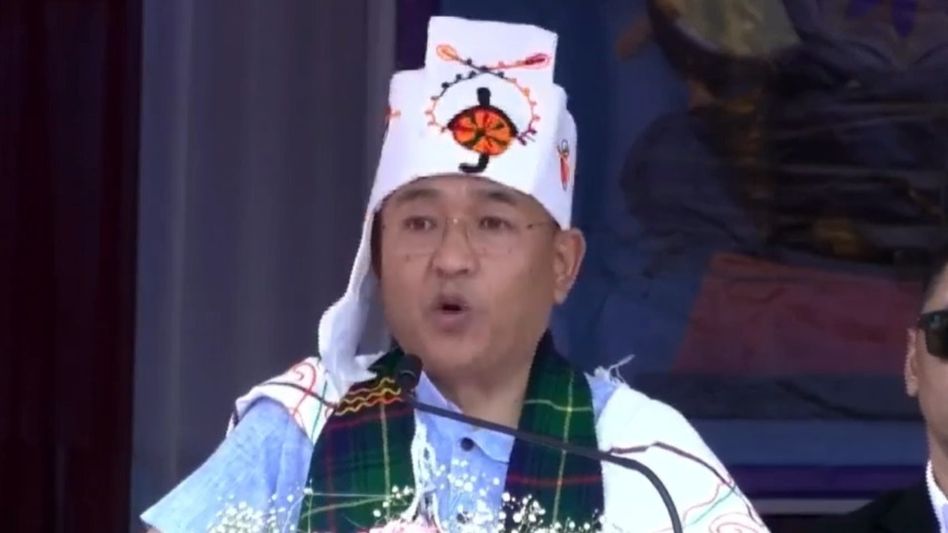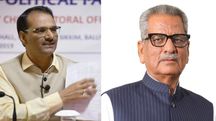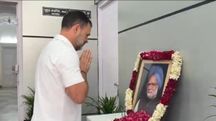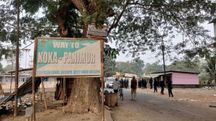Sikkim CM promotes cultural unity and transparency in government policies
Sikkim CM Prem Singh Tamang stresses cultural unity and fairness. Announces reforms for inclusivity and fair job opportunities.

Sikkim Chief Minister Prem Singh Tamang reiterated the goverment's commitment to cultural preservation and fairness, emphasising the importance of unity among all castes and communities in the state.
Addressing the gathering at the state-level Barahimijong ceremony as the chief guest on December 15, the chief minister highlighted reforms aimed at fostering harmony and inclusivity in Sikkim.
Speaking at the event, Tamang said, “In earlier governments, during community events, party flags were hoisted. I have changed that rule. Today, you will not see the Sikkim Krantikari Morcha (SKM) flag at any such event. This is how our party respects and values every community’s independence.”
He added that decisions regarding community leadership, such as appointing presidents or secretaries, are now solely the community’s choice, free from government interference.
Highlighting the achievements of his government over the past five years, Tamang criticised the previous Sikkim Democratic Front (SDF) regime for dividing people along caste and community lines, describing it as a “divide-and-rule” strategy. “The current government believes in unity and brings all communities together on a common platform,” he asserted.
To promote cultural heritage, the Chief Minister encouraged citizens to wear traditional attire. “People are free to wear their traditional dresses, even in schools, once a week. This initiative aims to preserve and showcase the unique culture and traditions of every community,” Tamang said. Sharing his personal commitment, he added, “When I attend Bhutia events, I wear Bhutia attire. At Rai events, I wear Rai dresses. Today, I am wearing a Magar traditional dress, and it has become an advertisement for their culture. I may not be a film star, but as a Chief Minister, I can promote the traditions of Sikkim’s communities.”
The Chief Minister urged officials and prominent figures, including journalists, to participate in cultural promotion. He mentioned renowned journalist Nirmal Mangar, encouraging him and others to wear traditional attire to celebrate and represent their roots.
Tamang also spoke on the government’s recent job vacancy results, which were filled transparently and based on reservation quotas. For the first time, individuals from marginalized communities like Jogi, Mukhiya, Gurung, Mangar, and Limboo have been selected for government jobs. “Poor families who could never dream of such opportunities are now seeing their children appointed as officers,” he said.
Citing examples, Tamang shared the story of Anita Mukhiya, a young woman from a poor family who worked in a private company in Gangtok but was recently appointed as Deputy Superintendent of Police (DSP). “Her appointment has brought pride to her family and community,” he said. Similarly, he mentioned Tara Prasad Sharma, who qualified as a civil judge but was denied a position under the previous government due to political biases. Sharma has now been appointed as an accounts officer under the SKM government.
“In the past, the poor could never imagine becoming officers, studying MBBS, or pursuing pilot courses. Today, our government has funded and encouraged even the underprivileged to achieve these dreams,” Tamang said. He reiterated his government’s commitment to supporting those facing medical crises and ensuring necessary treatment for the needy.
In his his address the Chief Minister applauded the Mangar community’s progress and resilience. “Today, the Mangar community can hold their heads high in Sikkim. This government will continue to protect and preserve the culture, heritage, and unity of all communities,” he said.
Copyright©2025 Living Media India Limited. For reprint rights: Syndications Today









